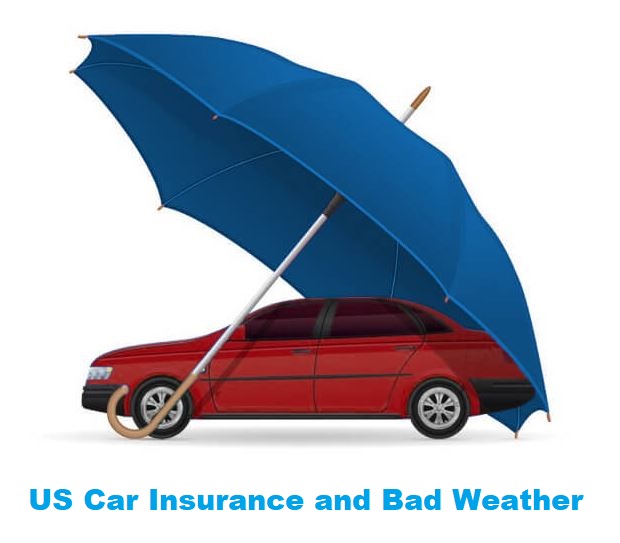Car insurance is really important in the US to keep your car and yourself safe from the financial hits that come with driving. Especially when the weather’s acting up, having the right coverage can be a lifesaver for both your car and your bank account.
This piece will delve into why car insurance matters in the US, the different types you can get, and how to make sure your vehicle stays protected when the weather gets rough.

The Importance of Car Insurance in the US
In many states throughout the US, having car insurance is a must. It’s there to offer a safety net financially if your car gets into an accident or some other mishap. Without it, you might find yourself on the hook for damages and injuries, which could really weigh heavy on your wallet.
Beyond just being a legal necessity, car insurance gives you a sense of security and shields your investment in your vehicle. It steps in to foot the bill for repairs, replacements, or medical bills if you’re in a crash, regardless of who’s to blame.
Types of Car Insurance Coverage
In the US, you’ll find various types of car insurance coverage tailored to safeguard you in different scenarios. Among the most prevalent are:
Liability coverage: This kicks in to cover the costs of damages and injuries to other individuals and their belongings if you’re found at fault in an accident.
Collision coverage: This steps up to cover the repairs for your own vehicle if it’s involved in a collision with another vehicle or object.
Comprehensive coverage: This provides protection for damages to your vehicle resulting from events other than collisions, such as theft, vandalism, or natural disasters.
Uninsured/underinsured motorist coverage: This comes into play if you’re in an accident with a driver who either doesn’t have insurance or doesn’t have enough coverage to pay for the damages and injuries.
Personal injury protection (PIP): This covers medical expenses for you and your passengers, no matter who’s at fault in the accident.
When you’re picking out car insurance coverage, it’s crucial to think about your specific vehicle and driving habits.
Some folks might opt for higher levels of coverage, like collision and comprehensive, to safeguard their investment in a newer or pricier vehicle.
Protecting Your Vehicle in Bad Weather
Severe weather can be tough on your vehicle, exposing it to risks like hail damage, flooding, or falling trees and branches.
Comprehensive coverage becomes especially crucial in these circumstances, as it can help foot the bill for repairs or even replacement if your vehicle gets battered by a natural disaster.
Aside from having the proper insurance coverage, there are several proactive measures you can take to shield your vehicle when bad weather strikes.
Make sure to park your vehicle in a garage or under a covered area whenever possible. This can provide a layer of protection against hail, heavy rain, or falling debris during bad weather.
Avoid driving through flooded areas, as water can cause damage to your vehicle’s engine and electrical components.
Before severe weather hits, remove any loose objects from your vehicle that could become dangerous projectiles in high winds. This includes things like lawn furniture or potted plants.
Stay informed about weather conditions by regularly checking local news and weather reports. This way, you’ll be aware of any severe weather warnings or advisories in your area and can take appropriate precautions.
It’s also a good idea to keep an emergency kit in your vehicle at all times. This kit should include essentials like a flashlight, blankets, and a first aid kit, just in case you find yourself stranded during a storm.
Conclusion:
Car insurance stands as a crucial investment for safeguarding both your vehicle and yourself while navigating the roads of the United States. With a grasp of the available coverage options and proactive measures to shield your vehicle during adverse weather conditions, you can maintain peace of mind knowing your car is well-protected, regardless of the challenges posed by Mother Nature.
For further insights into car insurance and tips on protecting your vehicle during inclement weather, consider visiting the websites of reputable organizations like the National Association of Insurance Commissioners and the Federal Emergency Management Agency.